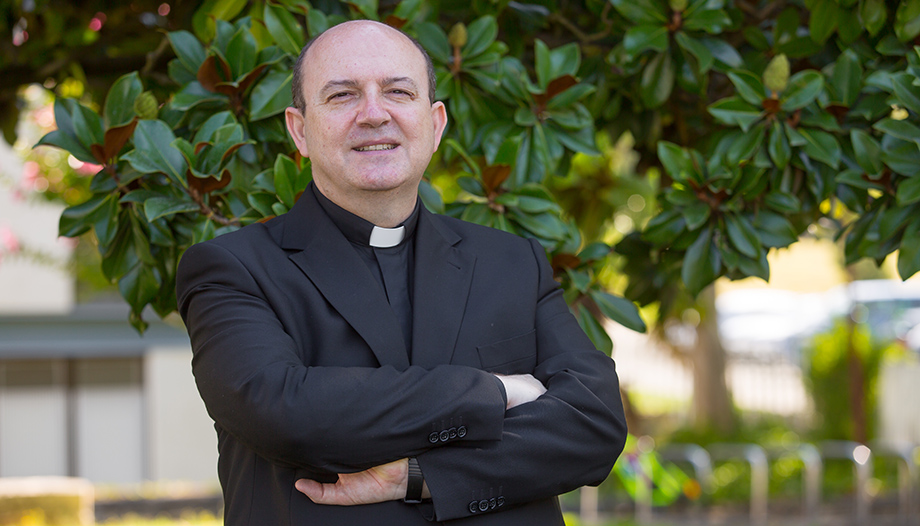The Higher Institute of Religious Sciences (ISCR) of the University of Navarra is 25 years old. As indicated on its website, this training center "was erected by the Holy See by decree of the Congregation for Catholic Education dated November 21, 1997 and renewed its erection -according to the new regulations of the Congregation- by Decree dated July 2011".
In this interview, the director of ISCR, Fermín Labarga, nos habla sobre los retos de la educación religiosa en el panorama actual, la evolución de la formación en estos últimos años y cómo afronta el Instituto su labor en el presente y el futuro cercano.
How has religious formation evolved in recent years?
In an increasingly pluralistic and secularized world, religious formation plays a fundamental role. Religion is part of the life and culture of societies, therefore, deepening today the knowledge of faith, of God, helps to understand today's world, to value and to establish an interdisciplinary dialogue between faith and culture. In recent years, religious education has been concerned with answering the questions that all people ask themselves about the meaning of their existence, the world and history, our roots.
What does the ISCR bring, and has brought in these 25 years, to the landscape of religious education today?
During these 25 years of experience, at the service of society and the Church, the ISCR of the University of Navarra, through its academic offerings -Baccalaureate in Religious Sciences and online programs in Theology, Biblical Studies, Philosophy, Morals and Pedagogy of the Faith- has offered a serious, systematic and faithful theological formation to the magisterium of the Church, which has benefited mainly lay people and, in a very particular way, religion teachers from both Spain and other countries of the world. Our objective is to provide them with the intellectual tools necessary for them to construct, from the Christian faith, their own thinking and to be able to dialogue with contemporary society. In this sense, the ISCR has contributed and continues to contribute people who are active and committed to the new evangelization, with the capacity to give reason for their hope, and to engage in a serene dialogue in the cultural and global agora.
One of the objectives of the ISCR is the new evangelization. What have been your most important contributions in this area?
Through ISCR's online and blended learning, we have broken down borders and are now present in many countries around the world that have specific needs and different cultural scenarios. Measuring the Institute's contributions to evangelization is not an easy task, since it is our students (and alumni) who are the protagonists of it, who go in search of new ways to transform life and society from their professional, pastoral, family and friendship responsibilities.
In this regard, through the meeting points (a kind of virtual cafeteria that we have developed for the informal meeting of students) and the theological-didactic days in person, we are surprised by the unsuspected fruits of the formation that we offer. We have gathered experiences from students who share with us their projects and hopes, such as the creation of podcasts, books, prayer and formation groups, catechesis, etc. It is moving to see that what we do at ISCR has a real impact on the life of the Church and of so many people and families.
What challenges does education, especially religious education, face today?
Faced with the cultural changes experienced in recent decades, there are many challenges to religious education: moral relativism, religious indifferentism, scientific and technological progress that brings both hopes and great challenges (Artificial Intelligence, transhumanism)....
In response to these challenges, at ISCR we are committed to solid training with an open outlook so that our students are able to engage in dialogue with new currents of thought and respond to the new challenges that arise.
If our students, after passing through the Institute, are capable of interpreting the signs of the times with Christian criteria, reasoning and deepening their faith and responding with hope to the new situations that are opening up, we are satisfied.
What is expected from ISCR in the coming years?
The ISCR hopes to continue to be an academic center of excellence, in a fully university context within the University of Navarra, offering a solid theological formation, complete and systematic thanks to a magnificent faculty of professors. It also aspires to be a center of dialogue, cooperation and common commitment, on an ethical and social level, to help all people to deepen their faith, with a broad outlook. We want the work carried out at the ISCR to multiply and open up to new horizons, since Christian thought enriches people, cultures and the world.
Thanks to new technologies, our training crosses screens and opens like small windows to the world, so we want to go further and further. We have students from 30 countries, so there is still a lot of room for growth. And although we have a wide range of academic offerings, our students ask for more and we hope in the future, God willing, to be able to offer them new training programs.







